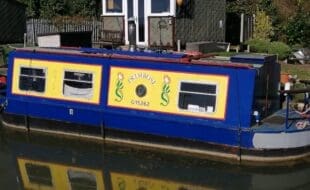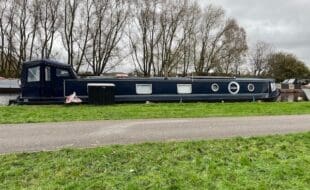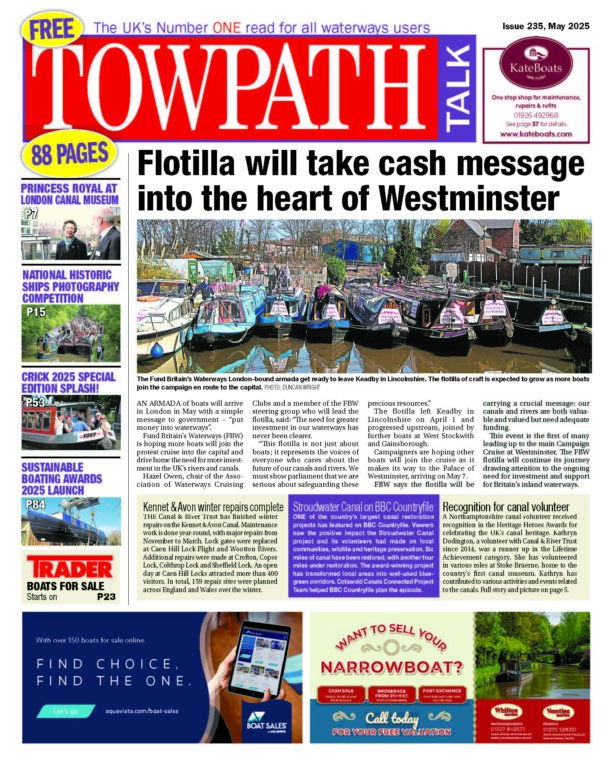NABO general secretary Peter Braybrook comments on some more topical issues.
IT LOOKS as if 2023 will be the start of a period of environmental challenge. Everybody knows that the planet is dying because we cannot take care of it properly. Every indicator is that we are heading toward a disaster with carbon becoming a pariah which we need to reduce to net zero without delay.

Yet Parliament has voted to allow sewage discharges into our streams and rivers for the next 15 years. Many of these waterways feed the canal system. Do we know whether the water in the canals is safe? One would think that the charity responsible for the management of these canals and rivers would know what is in the water.
But an enquiry from NABO has found that there is no systematic or regular sampling of the water in our canals. So nobody knows whether the water is good or bad.
We all know that treated sewage is discharged at places such as Sewer lock on the Grand Union Canal. What effect is it having on the wildlife and fisheries?
We are also concerned about the expansion of such discharges. We have just heard of a Thames Water scheme to abstract 75 million litres a day from the River Thames 350 metres above Teddington Lock and replace it with treated effluent from the Mogden sewage treatment plant. This has discharged to the tidal Thames at Isleworth Ait since 1931. Why do we need to put a living river at risk? Why encourage the fish up the weir with a fish ladder to die in oxygen-starved water above it?
This is the 21st century and one thing we have learned is that if one has a lie and then repeats it many, many times it then becomes accepted as the truth.
The Canal & River Trust has been saying that there is a continuous cruising licence for some time now. It has now become such common parlance that the Government has included this within the application form for the £400 energy support grant that is supposed to be for every household in the country. If you hold a ‘continuous cruising licence’ which of course you can’t because they do not exist, you are excluded from applying for the grant.
The 1995 British Waterways Act speaks only of ‘relevant consent’ which means licences or houseboat certificates. Conditions for refusal of a licence fall into two groups: boats without a home mooring and boats not used for bona fide navigation throughout the whole term of the licence. It has long been NABO’s view that to issue Terms and Conditions made under the 1962 Transport Act to alter these conditions in the 1995 British Waterways Act is unlawful.
But now Government has accepted the existence of a ‘continuous cruising licence’ and excluded these households from the money to which they are entitled. What an injustice. NABO will campaign alongside other boating organisations to have this reversed. Boat owners who live aboard are households wherever they are around the system and as coal and diesel prices increase they are under extreme financial pressure to maintain their off-grid lifestyle.
Under siege
Boaters are also under environmental siege because most of us use solid fuel stoves. Apparently this is anti-social and environmentally unfriendly. In a document entitled Cleaner air for all on the Waterways – Information and advice about air pollution and boats, which is adorned by the logos of CRT and three London boroughs, boaters are advised to only charge batteries while cruising, convert their motive power to electricity and not to burn anything apart from smokeless fuel on the solid fuel stove.
The majority of our stoves are Defra approved and therefore exempt from the regulations as the stoves burn in a smokeless manner apart from smoking when lighting up or immediately after replenishment. We are all for advice that helps us get cleaner air but expect it also to conform to common sense.
The advice also recommends the installation of a carbon monoxide alarm. The authors are obviously ignorant of the fact that this is a compulsory requirement under the Boat Safety Scheme.
No one condones the burning of wet, smoky wood but well-seasoned fuel gleaned from our canal hedges and woodlands will offset the deficit of the £400 grant. There was no mention in the advice of hydrotreated vegetable oil (HVO) as an alternative fuel to diesel even though it reduces greenhouse gas emissions and harmful particulate matter dramatically, by up to 90%. Perhaps the document is intended to fuel the incinerators used by the councils where rubbish is burned and converted into carbon dioxide and many other gases, ash and electricity.
I would like to put a shout out for that intrepid group of boaters who ply the inland waterways with essential coal, gas, diesel and blue in all weathers and temperatures. Many have had to modify their schedules and itineraries to accommodate the varying winter stoppage programmes. All are committed to ensuring that winter warmth is available to the boaters in their patch. Our local fuel boat also keeps an eye out for those who are not weathering the storms so well and are ready to get help when needed. There is no one more welcome or available with a cheery word to warm a winter’s day.
Thank you fuel boats, one and all.
#NABO #nationalassociationofboatowners #towpathtalk #canals #canalsandrivers #narrowboat #rivers #waterways #lifeonthecut #boating #boats #canallife #canallifeuk





